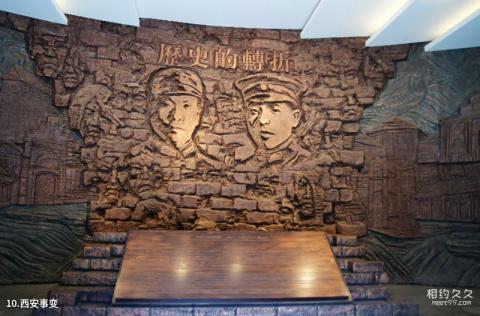
Introduction to the Xi'an Incident: The Xi'an Incident, also known as the "Double Twelve Incident", was a turning point in Chinese history. On December 12, 1936, in order to persuade Chiang Kai-shek to change the established national policy of "Anti-foreign aggression must first pacify the internal situation", stop the civil war and unite to resist Japan. Zhang Xueliang, then deputy commander-in-chief of the northwest bandit suppression and leader of the Northeast Army, and Yang Hucheng, then commander-in-chief of the 17th Route of the National Revolutionary Army and leader of the northwest army, conspired with the Communist Party to launch a mutiny in Huaqingchi, Xi'an and detained the then chairman of the Military Commission of the National Government. and Chiang Kai-shek, the commander-in-chief of the Northwest Bandit Suppression, known as the "Xi'an Soldiers' Admonition" at that time. Under the leadership of the Central Committee of the Communist Party of China and Comrade Zhou Enlai, it was finally resolved peacefully with Chiang Kai-shek accepting the proposition of "stopping the civil war and uniting with the Communist Party to resist Japan", which led to the second cooperation between the Kuomintang and the Communist Party. The peaceful settlement of the Xi'an Incident marked the failure of the Kuomintang's cooperative military training in Germany. , accelerated the process of Japan's invasion of China.
